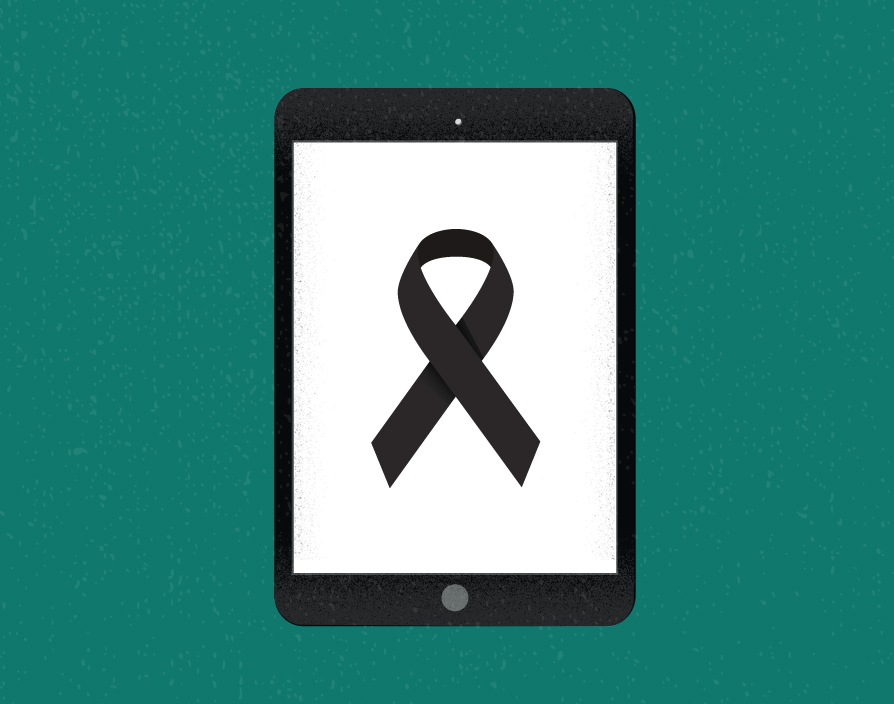Death might not be the first sector one thinks of when discussing dynamic and disruptive startups. “Even some of my friends who are very successful entrepreneurs, when I tell them about the death industry they just look at me like I’m crazy,” says Ian Strang, founder and CEO of Funeralbooker, the comparison site for funeral services. “It’s just a place some people don’t want to go.” However, given that market analysts IBISworld peg the UK funeral sector as being worth £1.7bn annually, it’s hardly surprising that the industry is drawing increasing interest from intrepid innovators who realise it’s ripe for disruption. “In the same way that down the tube lines, each stop becomes gentrified one after another, they naturally think: ‘we’ve done everything to do with our social lives, now we’ve done healthcare: the next step is death’,” he says. “It’s the inevitable end of the line, the last place to get gentrified by the digital revolution.”
But it isn’t just that death is the new Peckham, a trendy borough on the upswing that’s attracting the attention of crowds of tech-obsessives and cold-brew-swilling creatives. In fact, the increasing number of startups providing services around death and mourning may be symptomatic of a much deeper cultural shift. “People are recognising that it is part of the human experience to contend with mortality and experience loss,” says Suelin Chen, co-founder and CEO of Cake, the platform for establishing and sharing your end-of-life preferences. “There is increasingly a desire in the general public to wrestle with this topic, think about it and reflect on it.” And in an age where those most likely to be affected by death are becoming increasingly tech-savvy, it is perhaps inevitable that consumers are starting to seek out apps and services that help them prepare for and make sense of their own mortality. “It touches everybody,” she says. “Tech natives are now getting to the ages where they’re really starting to think about death and now even older people can be very tech fluent.”
According to research by Dying Matters, the coalition set up by the National Council for Palliative Care, only 35% of people have a will and just 5% have set out their preferences for end-of-life care. In light of this, it was perhaps inevitable that planning would be one of the key areas that has seen an influx of startups eager to help people prepare for their own passing. “The current way people plan is really hard and painful: technology can make it easier,” Chen says. Not only can innovations like Cake’s guide users through the many difficult end-of-life decisions they may need to make – whether that’s how they would like to be cared for or the planning of their funeral – but it has the added benefit of making it easy for users to convey their wishes to their loved ones, no matter how far away they may be. “Given that a lot of us are not geographically co-located with the people we care about, technology offers a great way to communicate your wishes,” says Chen.
However, technology doesn’t just stand to make things easier those of us planning for the future: it can also give those grieving some much needed clarity when attempting to make funeral arrangements. “There was research that came out from the Office of Fair Trading that said 92% of people buy from the first funeral director they visit,” says Strang. “They’re in a bereaved state and don’t feel able to negotiate.” By offering grieving relatives the chance to directly compare the prices and plans of funeral directors, Funeralbooker allows them to make sure they’re getting the right deal for them. But, in Strang’s eyes, there are plenty of other ways that startups could help simplify funeral planning to take pressure off those mourning. “There’s a definite opportunity there for technology providers to provide funeral directors with better tools, whether that’s improved ways of informing the family or crowdfunding the funeral,” he says.
Unfortunately, mourning doesn’t simply end with the funeral and it can take a long while for people to process their grief. But, even here, there is an opportunity for startups to make things easier for the bereaved and help them heal. “When you’re in that situation, you’re certainly not alone: there are many people who are experiencing similar things,” says Chen. “Technology can help people connect to others who are grieving, be inspired by their stories and be more public about their own bereavement.”

And startups aren’t just facilitating conversations between those left behind. As more and more of our lives and identities play out online, an enduring record of who we are and the things we’ve experienced are being created and this is allowing tech brands like Facebook to offer public memorials to act as a digital focal point for people’s grief. “Traditionally you had stone grave markers because they lasted a really long time but now traces of us on the internet are what is going to persist long after we’ve passed,” she says.
But with such a wealth of data available and the kind of technologies produced by startups evolving at a remarkable rate, it seems unlikely this will be the only advance in the way we remember the dead – as the story of Eugenia Kuyda, co-founder and and CEO of Luka, the AI startup, demonstrates. When her close friend and fellow entrepreneur Roman Mazurenko was killed in a traffic collision, she and her team of engineers fed old text messages into a neural network to produce an AI that could convincingly reproduce his speech patterns and enable those mourning him to speak to him once again. While perhaps the first thing that will strike many about this is the uncanny resemblance it bears to an episode of science-fiction anthology series Black Mirror, the most fascinating part of Kuyda’s experiment was how many of those interacting with the bot seemed to benefit from having some way of expressing and externalising their grief.
Not everyone may be as comfortable with technology coming to play such a significant role in the mourning process and some consumers might feel uncomfortable about ceding something so fundamental to who we are as humans to the control of software. “It’s very human and potentially evolutionary to have a squeamishness around death,” says Chen. “That’s pretty natural.” While there does seem to be an eagerness among the general public to embrace the role technology can play in helping us plan for and process death, she urges startups not to think they can rush in with a wrecking ball and start demolishing too many of the taboos and traditions that surround death. “You have to walk a fine line in terms of tone and sensitivity,” she says. “Companies have a responsibility to be tactful and to be mindful of the emotional challenges of this space.”
However, that’s not to say that startups operating in this sector can only ever approach the subject with total sombreness and solemnity. Funeralbooker knows this better than anyone: for April Fool’s Day this year, the startup ran a spoof ad for the CremMate, a portable cremator designed for home cremations. “It got a huge amount of traction: it got 20,000 views in a day and was covered by the Telegraph,” says Strang. “They did call it the darkest April Fools of the year but they covered and enjoyed it.” And while some within the company were a little jittery about poking fun around the subject of death, the founder correctly anticipated that the public wouldn’t mind the tongue-in-cheek ad.
And ultimately this is one of the key benefits of introducing a touch of tech into people’s relationships with death. “Technology can destigmatise the conversation and reposition our relationship with death,” says Chen. By putting apps and services into the palm of their hands, startups in the sector are helping people regain some control over one of life’s greatest unknowns and turn something traditionally seen as a time for sadness into something much more positive. “There’s a long tradition in many cultures of relating to death and mortality as a positive motivating factor and that can be really powerful,” she says. “Technology is already helping to cultivate a deep appreciation for the time that we have and having that kind of mindset will definitely benefit everybody.” ![]()
Share via:


















































